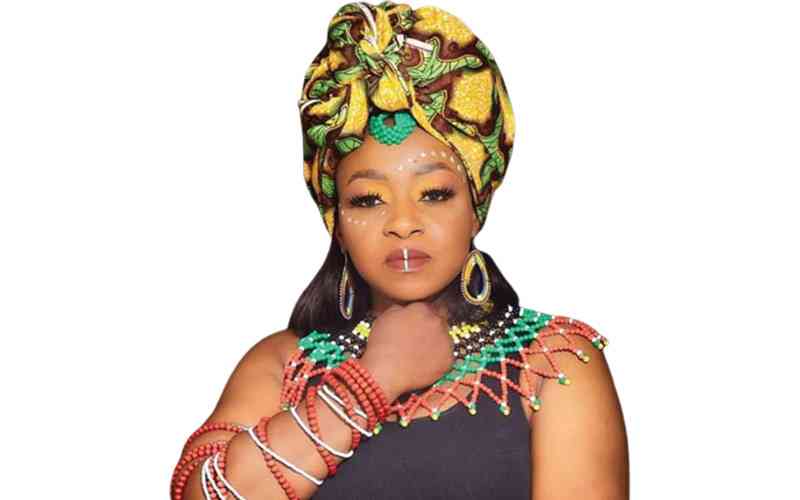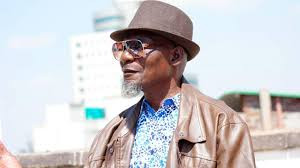
Bleu Ice's melodies — whose real name is Ngqabutho Admire Mpala — infused with the rich cultural essence of Nkulumane township in Bulawayo serve as a reminder that music can be a powerful force for healing.
His kwaito beats, permeated with messages of hope and resilience, offer a lifeline to those traversing the turbulent waters of mental health which affect men in most cases.
In the rhythm of his songs, many find a voice, a community, and a beacon of hope, proving that through music, even the deepest wounds can find a path to healing.
At the forefront of this cultural revolution, Mpala, a charismatic Kwaito artist's lyrics weave together the raw threads of life, love, and mental health struggles.
With a heart as deep as his beats, Bleu Ice is transforming the landscape of men’s mental health, one song at a time.
Nkulumane, a township bursting with life and stories, is where Bleu Ice's journey began.
It is a place where every corner hums with history and every face tells a tale.
Here, amidst the daily hustle, Bleu Ice found his voice. He grew up surrounded by the sounds of Kwaito, a genre that mirrors the vibrancy and struggles of township life.
- Cassper Nyovest, NaaqMusiq in Byo
- Cassper Nyovest, NaaqMusiq in Byo
- Mental health must be a priority at our workplaces
- ‘Art therapy critical in combating mental disorders’
Keep Reading
Kwaito, with its infectious beats and heartfelt lyrics, became the perfect canvas for Bleu Ice to paint his narratives.
His journey into music was not merely a pursuit of fame but a quest for purpose. From a young age, Bleu Ice explains how he saw the silent battles waged by men around him, the unspoken pain, the suppressed tears, and the hidden scars.
Determined to break the silence, he turned to kwaito, infusing his lyrics with messages of hope, resilience, and mental health awareness.
‘I grew up in Bulawayo in Nkulumane 5. We grew up following the pantsula culture, dancing ,and doing rap or dance battles. I started rapping when I was in high school at the age of 17. I went to Nkulumane High school, and in the streets I was called'Mavetani" because of my light complexion.
"Later when I told my grandfather that I want to do music and I am looking for a name, he gave me the name Bleu ice and I asked why Bleu ice; and he sad, you are tough and strong it's hard to read someone like you. So he thought the name would represent me very well and I started using it. I think it defines me very well. I wear clothes like a pantsula, and sometines I wear edgy fashion like a nigga so that It can be easy to determine that I am doing hip hop or kwaito whenever you look at me," Mpala said.
Bleu Ice’s music transcends mere sound; it is a form of therapy. His concerts are more than performances, they are communal healing sessions. Fans gather not just to dance but to connect, share, and heal. The beats of Kwaito become the background to shared stories, tears, and laughter, creating a space where men can unburden themselves without the fear of judgment.
The impact of Bleu Ice’s work is profound. In Nkulumane and beyond, his songs have sparked conversations about mental health, breaking down barriers and stigmas among his peers.
“I write most of my songs with a story behind them. Some of the stories happen to me, while I see some stories in other people, but some of my songs are dance songs with an entertaining vibe. So I think people relate well in these stories and the creativity that I put in the songs, and the inspiration to live, to keep going and thinking of positive things through the day.
"A negative attitude is very contagious and can rub off on you little by little without knowledge. I always make sure that after listening to those stories in my songs, they keep the fans and people focused on their successes, dreams and learn from their failures.”
Mpala explained how mental health issues affecting men and boys are a significant concern, often making it difficult for them to openly discuss their emotions and struggles.
He further added that this could lead to higher suicide rates, substance abuse, depression, and anxiety.
‘It's essential to encourage open conversations, provide access to mental health resources, and support mental wellness. By fostering a culture where men and boys feel comfortable seeking help and discussing their mental health, we can break the ice and melt the barriers that keep them silent. If someone I know is struggling, I can reach out to organizations dedicated to offering support," Mpala explained.
Bleu Ice from Nkulumane, Bulawayo, stands as a testament to the transformative power of music.
His kwaito lyrics, infused with messages of mental health and healing, offer a lifeline to men struggling in silence.
In the rhythmic embrace of his beats, many have found a voice, a community, and a beacon of hope. Bleu Ice's journey is a reminder that music can heal, empower, and unite, making the world a better place, one song at a time.
- Raymond Millagre Langa is a musician, poet, orator, independent researcher and founder of Indebo edutainment Trust. You can follow him on Facebook @Millagre Ray Langa, on X you can follow on #Millagre Langa, email. millagrepapito@gmail.com or indebotrust@gmail.com









